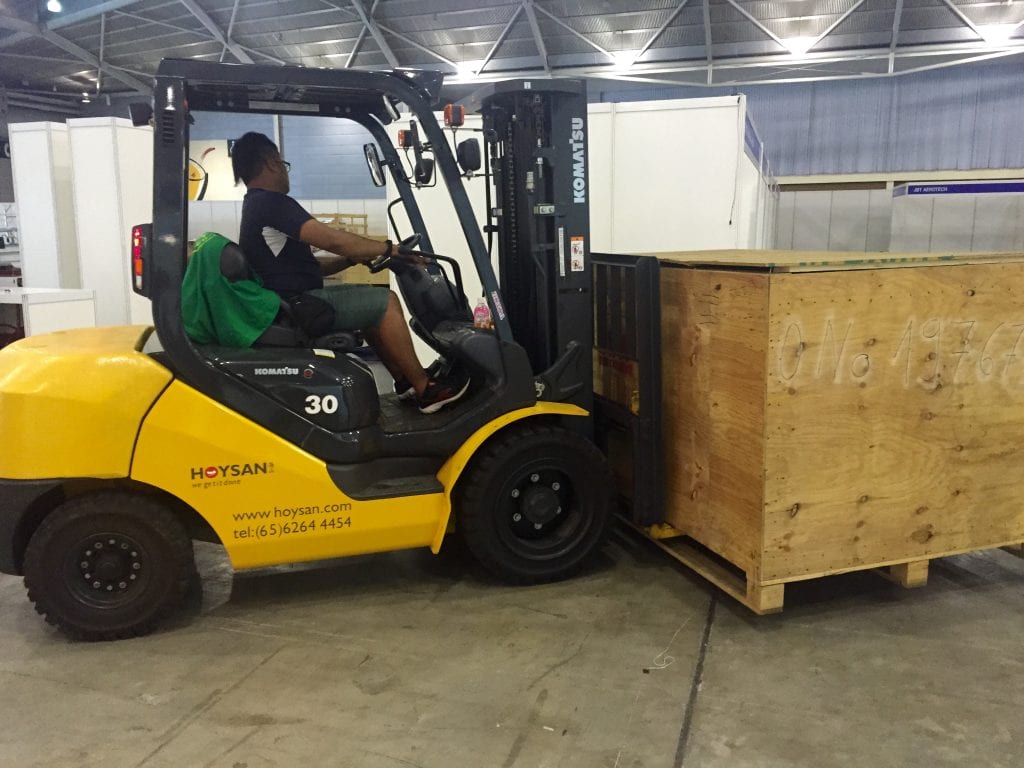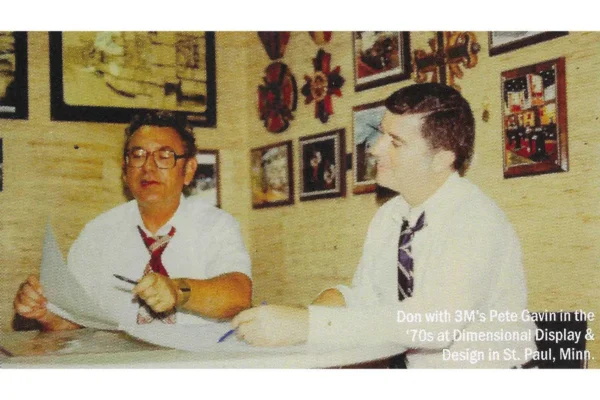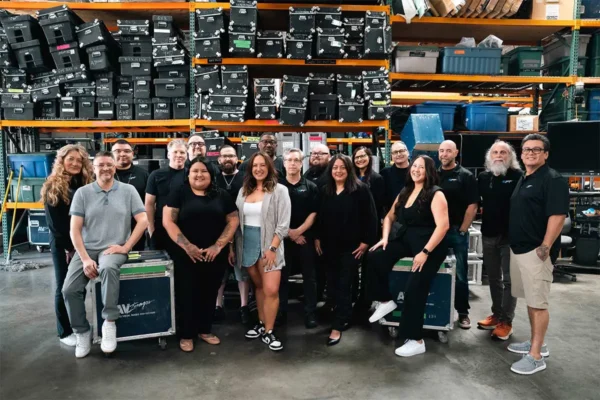A family-owned and -operated business, Transit Air Cargo treats customers and employees like one of their own. The transportation and logistics service for the tradeshow industry is led by a mother-daughter team who do everything with a personal touch.
Originally founded by Jamshed “Jim” Khodayar in 1989, Gul Khodayar took over the role of president following her husband’s passing, with daughter Tania stepping in as vice president. When the company was first formed, the Khodayars had no trouble finding a niche.

“There weren’t too many other companies specializing in tradeshow transportation and logistics at the time, so we found it to be the perfect market to enter,” Tania explained.
Tania and her mother now lead the women-owned minority company as a “family business” by creating meaningful connections with clients and forming strong bonds with employees, several of whom have been with the company since the beginning.
“When you work with us, you’re part of the Transit Air Cargo family. We know everyone by name,” said Tania Khodayar, vice president, Transit Air Cargo.
Keeping close ties, employees like Vice President of Domestic Operations Christy Colton, who helped late owner Jamshed establish the company during its early stages, continued to provide the same support and guidance to Gul and Tania when the two inherited the business.
Not just a logistics company, Transit Air Cargo also provides tradeshow consulting to help customers with the entire tradeshow experience. Handling paperwork and working closely with general service contractors on behalf of exhibitors adds a personal touch.
Moving tradeshow freight is vastly different from other types of cargo, according to Vice President Tania Khodayar. Not only are tradeshows time-sensitive, but cargo also needs to be handled with extra care and attention. Tradeshow cargo must be delivered both to the proper location, whether to an advanced warehouse or directly to show site, and on time to reach an exhibitor’s target move-in date.

Expensive, and often fragile, cargo is placed on air ride trucks with special rear wheels that prevent the trailer from bouncing and shifting the cargo during transit. Additionally, Transit Air Cargo endeavors to keep freight on the same truck for the duration of the move. Transferring freight before it reaches its destination increases the risk of damage.
Following 9/11, many aspects of the tradeshow industry were heavily affected, including transportation and logistics. Enhanced security measures included stricter rules and regulations such as more stringent customs clearance for international shipping and requiring proper identification from truckers.
Without proper documentation, exhibitors may suffer penalties or delays in shipment. Consequently, many exhibitors began moving freight via ground transportation rather than air due to increased fees and fines under Transportation Security Administration (TSA) rules.
To ship by air, exhibitors must register with the TSA. Those registered as a “Known Traveler” may use passenger airplanes whereas an “Unknown Traveler” must ship by freight aircraft, a costlier means of transportation.
Heightened restrictions also meant longer timelines to move shipment. International shipments, for example, need to be moved several weeks in advance to allow time to clear customs and for exhibitors to store or review inventory prior to a show opening.
Tania recommends exhibitors provide the most accurate and complete information as possible to a transportation and logistics company when arranging shipping.
“The move relies entirely on information provided by the customer,” Tania advised. “Be prepared and have the shipment ready in advance. This provides ample time for the freight forwarder to overcome the unexpected.”
Preparing itself for the next stage, Transit Air Cargo is expanding in more ways than one.
“We’re working to expand within our niche in the tradeshow industry and expand opportunities with licenses and certifications,” Tania stated.
Keeping a close eye on global happenings, the firm has extended the reach of its Asian offices following the lifting of sanctions in Myanmar.
Becoming International Traffic in Arms Regulations (ITAR) compliant allows Transit Air Cargo to export government and military items and defense articles. As an in-house customs brokerage, the firm is licensed by the Treasury Department to act as a professional-agent to clear goods being imported or exported through customs.
The women-owned minority company will continue to explore other avenues to move itself forward within the tradeshow and exhibition industry.





























